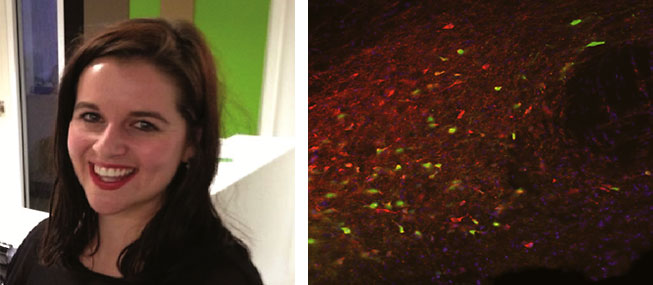Hot Off The Press – April 2017
Sharpe, Melissa J; Chang, Chun Yun; Liu, Melissa A; Batchelor, Hannah M; Mueller, Lauren E; Jones, Joshua L; Niv, Yael; Schoenbaum, Geoffrey
Dopamine transients are sufficient and necessary for acquisition of model-based associations. Journal Article
In: Nat Neurosci, vol. 20, no. 5, pp. 735–742, 2017, ISSN: 1546-1726 (Electronic); 1097-6256 (Linking).
@article{Sharpe:2017aa,
title = {Dopamine transients are sufficient and necessary for acquisition of model-based associations.},
author = {Melissa J Sharpe and Chun Yun Chang and Melissa A Liu and Hannah M Batchelor and Lauren E Mueller and Joshua L Jones and Yael Niv and Geoffrey Schoenbaum},
url = {https://www.ncbi.nlm.nih.gov/pubmed/28368385},
doi = {10.1038/nn.4538},
issn = {1546-1726 (Electronic); 1097-6256 (Linking)},
year = {2017},
date = {2017-04-03},
journal = {Nat Neurosci},
volume = {20},
number = {5},
pages = {735--742},
address = {NIDA Intramural Research Program, Baltimore, Maryland, USA.},
abstract = {Associative learning is driven by prediction errors. Dopamine transients correlate with these errors, which current interpretations limit to endowing cues with a scalar quantity reflecting the value of future rewards. We tested whether dopamine might act more broadly to support learning of an associative model of the environment. Using sensory preconditioning, we show that prediction errors underlying stimulus-stimulus learning can be blocked behaviorally and reinstated by optogenetically activating dopamine neurons. We further show that suppressing the firing of these neurons across the transition prevents normal stimulus-stimulus learning. These results establish that the acquisition of model-based information about transitions between nonrewarding events is also driven by prediction errors and that, contrary to existing canon, dopamine transients are both sufficient and necessary to support this type of learning. Our findings open new possibilities for how these biological signals might support associative learning in the mammalian brain in these and other contexts.},
keywords = {},
pubstate = {published},
tppubtype = {article}
}
Associative learning is driven by prediction errors. Dopamine transients correlate with these errors, which current interpretations limit to endowing cues with a scalar quantity reflecting the value of future rewards. We tested whether dopamine might act more broadly to support learning of an associative model of the environment. Using sensory preconditioning, we show that prediction errors underlying stimulus-stimulus learning can be blocked behaviorally and reinstated by optogenetically activating dopamine neurons. We further show that suppressing the firing of these neurons across the transition prevents normal stimulus-stimulus learning. These results establish that the acquisition of model-based information about transitions between nonrewarding events is also driven by prediction errors and that, contrary to existing canon, dopamine transients are both sufficient and necessary to support this type of learning. Our findings open new possibilities for how these biological signals might support associative learning in the mammalian brain in these and other contexts.

